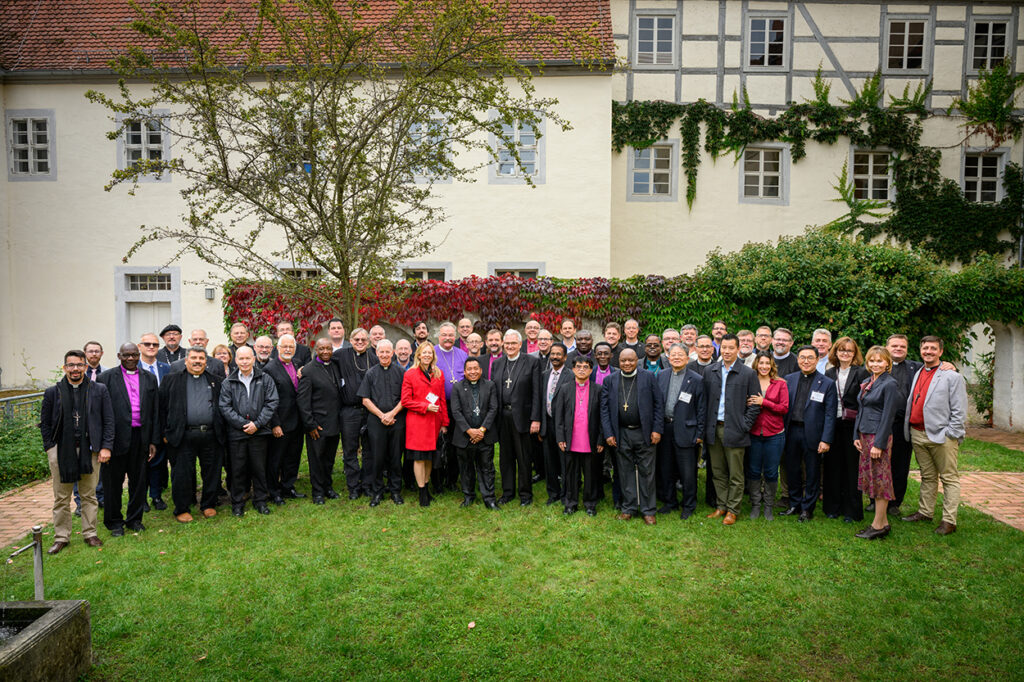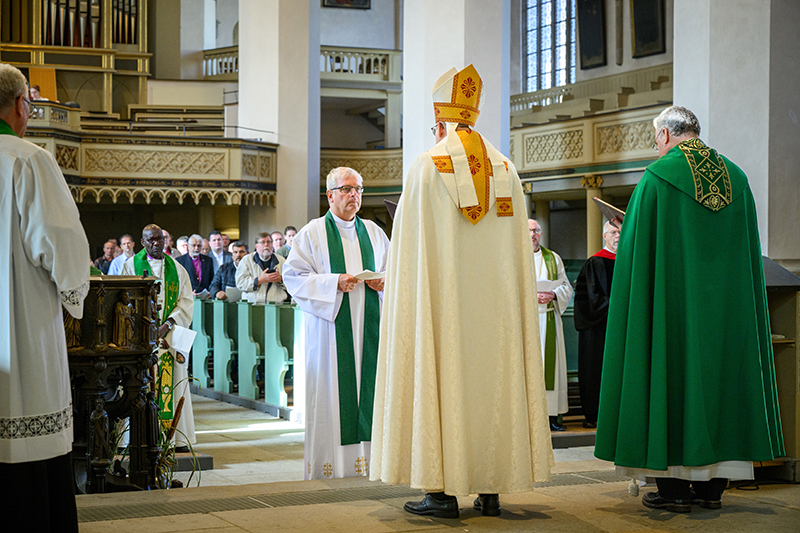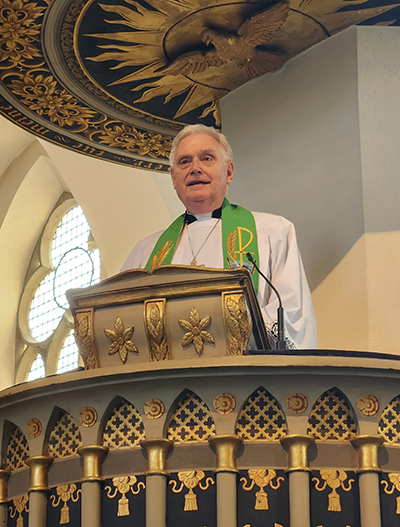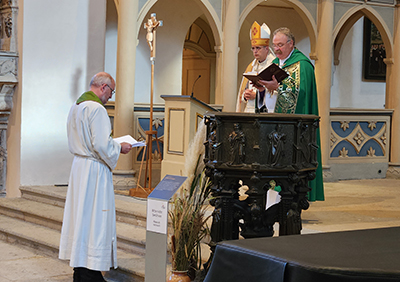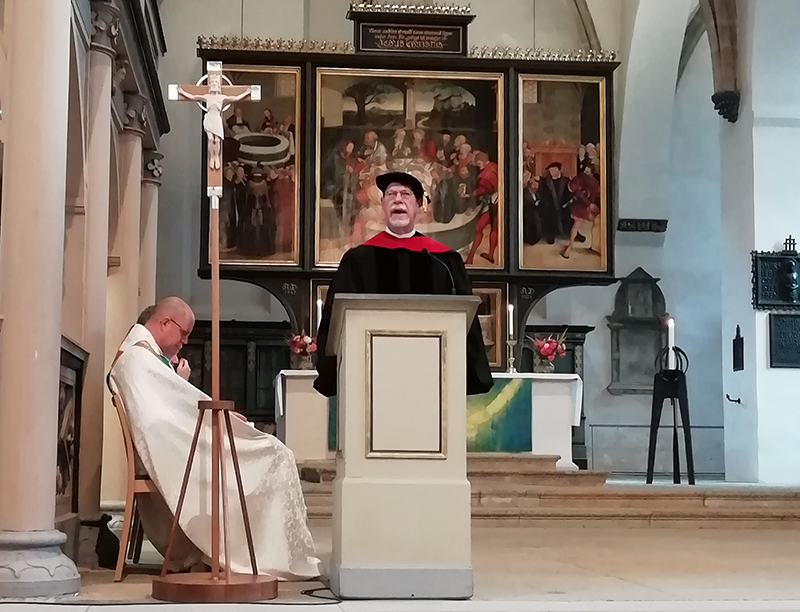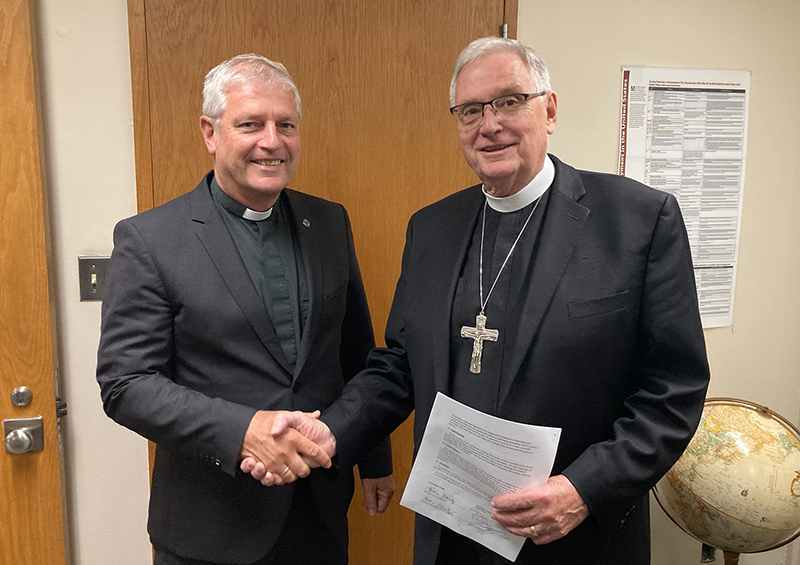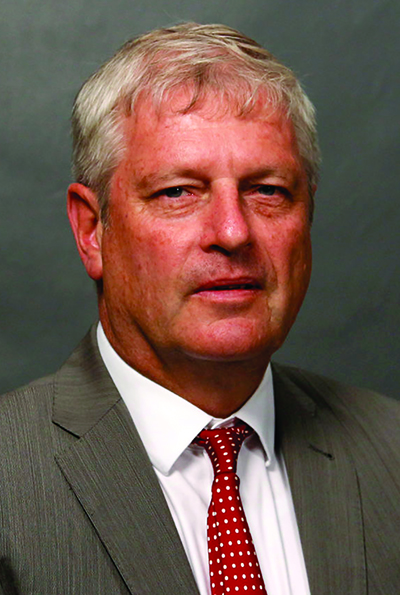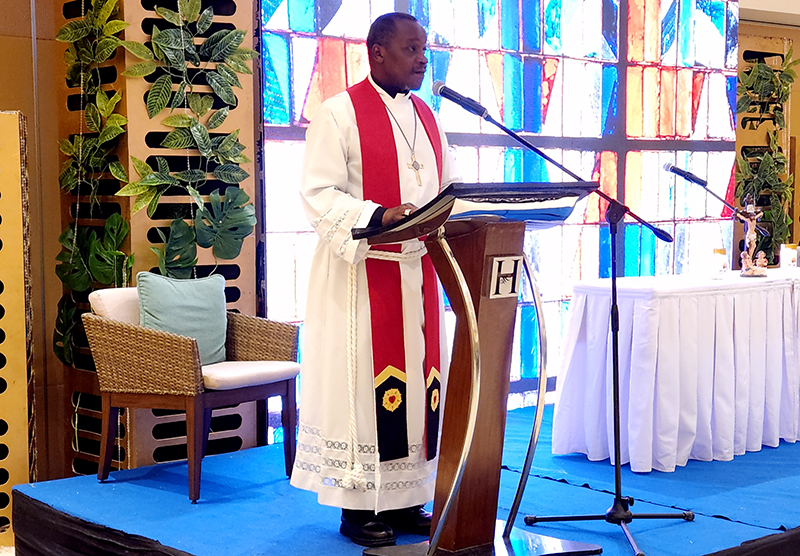
PHILIPPINES – The International Lutheran Council’s (ILC) World Conference continued on Wednesday, beginning with a service of Matins. The Lutheran Church in the Philippines’ (LCP) Vice President Felipe Ehican served as liturgist, and the ILC’s Secretary, Bishop Charles Bameka of the Lutheran Church of Uganda (LCU), serving as preacher.
Bishop Bameka said that our world is increasingly confused and fragmented—including, sadly, within some historic Christian denominations. “So what is the role” of God’s faithful people, the Church, “in this confusion and chaos?” he asked. The answer is found in 1 Timothy 3:15. “We are called upon to be the ‘Pillar and Foundation of Truth,’” he explained, “proclaiming Christ to the fragmented world around us.”
That message is not welcomed by the outside world, he noted, but that only points to our need for God’s mercy in living out the calling He has given us. “The only way the Church can move forward as a ‘Pillar and Foundation of Truth’… is by calling out to the Almighty God to do what only God can do in and through us by His Holy Spirit: proclaim and teach the Word as we preach the resurrected Christ… to the sin-sick fragmented world we live in today.”
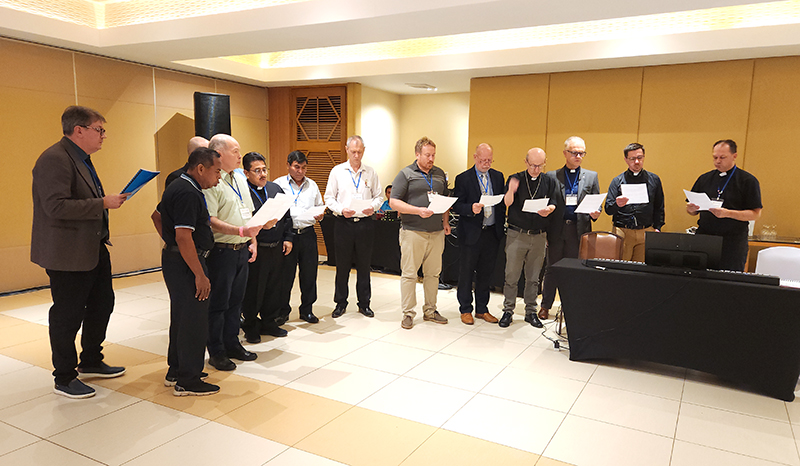
Wednesday’s service of matins also featured a special performance by Spanish and Portuguese-speaking delegates to the conference, with the group singing the hymn “Da Igreja o fundamento” (“The Church’s One Foundation”). The musical arrangement for the rendition was newly prepared for this conference by Rev. Dr. Raul Blum of Brazil’s Seminário Concórdia. The group sang three verses in Spanish and two in Portuguese.
Affirming Constants in an Everchanging World
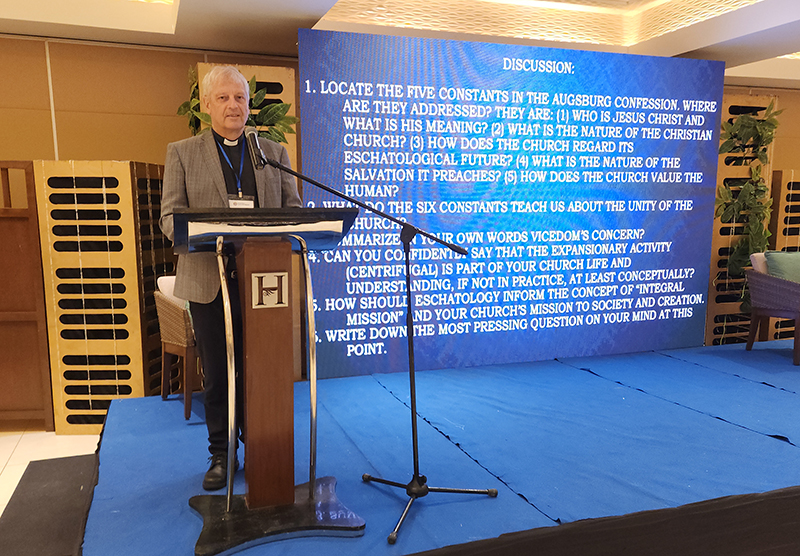
Following matins, the convention heard an address from the ILC’s General Secretary, Rev. Dr. Klaus Detlev Schulz. Dr. Schulz began by noting that the Church has two directional focuses—one looking first towards its grounding in Christ and one also looking outward as it represents Christ to others. “The church cannot divorce her second activity from the first,” Dr. Schulz said. “That means that while they saw themselves as blessed possessors of the saving faith in Christ, they also embraced an outward expansion in the form of this faith being proclaimed and confessed to others. To have faith without its confession, or a church without a mission, is like a dove flying with one wing only, not able to get off the ground.”
And yet, Dr. Schulz, continued, there have been diverging views of missions in world Christianity since the 20th century. Since the 1970s, he noted, a number of theological institutions have seen the replacement of missiology with “intercultural theology, claiming theologies around the world exist parallel to each other, without being one singular, uniting theology.”
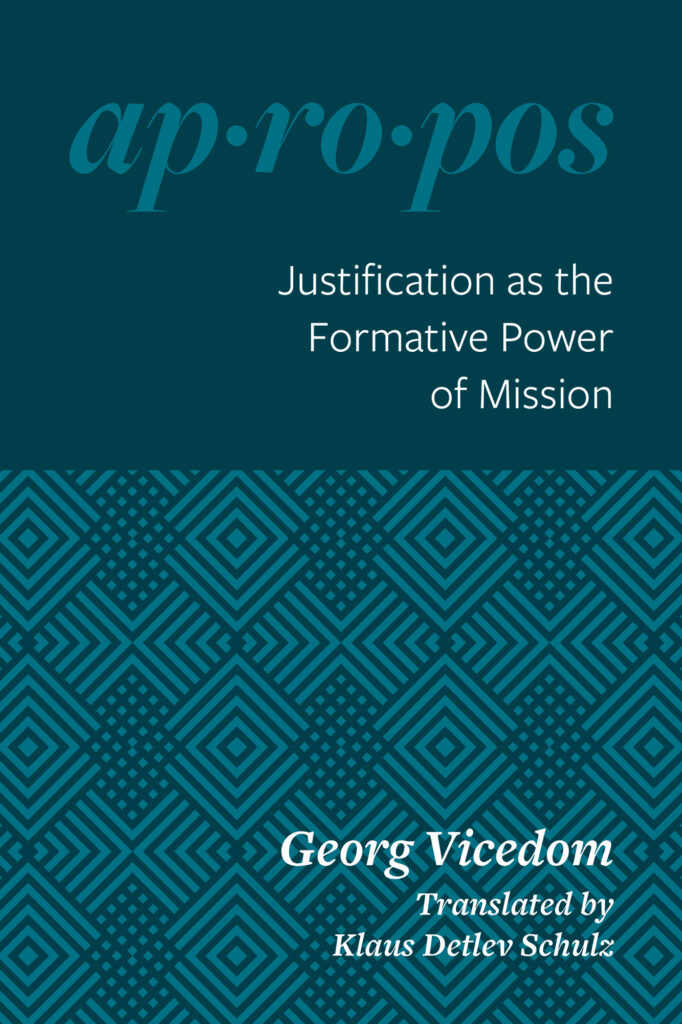
While “it is true that theology is never done in a vacuum,” Dr. Schulz said, “the crucial question becomes what theological system is available to us by which we can affirm the eternal Word and its constants in a changing world around us.” He drew participants’ attention to a 1952 work of George Vicedom on missiology. Vicedom “bemoans a drift away from the central article to a more inclusivistic inner-worldly understanding of salvation and a pursuit of missions that no longer sees the need for the church’s proclamation as central in God’s mission to people outside of Christ,” Dr. Schulz explained.
That drift is what resulted in the anemic understanding of missiology which prevailed in the 1970s. But what is the state of missiology today? Dr. Schulz examined two recent international statements: 2011’s Cape Town Commitment (CTC), a product of the Lausanne Movement, and 2012’s Together Towards Life (TTL) from the World Council of Churches. In TTL, “the radical missiology of the 1970s… has been tempered and the church’s role in mission has been reaffirmed,” Dr. Schulz said. But the statement still represents “a shift away from Christology and the redemptive nature of mission by the Holy Spirit through the church to an inclusion of all creation.” He continued: “There is thus a hesitation in TTL to admit an exclusive understanding of salvation in Jesus Christ, making concessions to people of other religions.” CTC, meanwhile, certainly “affirms the Christocentric approach with the church as the instrument.”
“As confessing Lutherans, we need to be reminded of the current discussions on missions and missiology,” Dr. Schulz continued. “For missions is, as Vicedom states, ‘the seismograph in the life of the church, where catastrophes that threaten the church are most apparent.’”
“As Confessional Lutherans, we know that we do not exist in a vacuum but in specific contexts with specific issues and challenges,” Dr. Schulz concluded. “At the same time, we are also aware of what joins us together regardless of situation and location. It is the mission of the proclamation of the Gospel that justifies the sinner extending forgiveness through Word and Sacraments.”
To accompany Dr. Schulz’ presentation, convention participants each received a copy of Vicedom’s Justification as the Formative Power of Mission, translated by Dr. Schulz, as a gift from Concordia Publishing House.
Missions in Europe
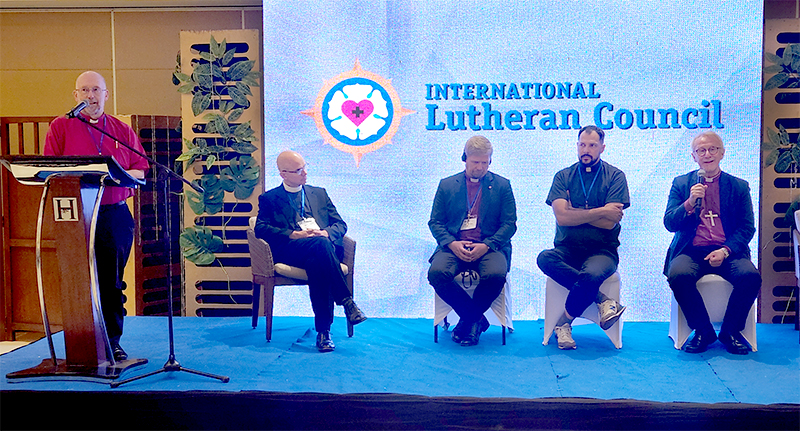
Dr. Schulz’ presentation was followed by the conference’s final Regional Focus, this time discussing the challenge of church-planting in secular Europe. Europe’s Regional Representative, Chairman George Samiec of the Evangelical Lutheran Church of England (ELCE) served as the moderator, with presentations by Bishop Torkild Masvie of the Lutheran Church in Norway and Iceland (LKNI), Bishop Ivan Laptev of the Evangelical Lutheran Church of Ingria (ELCIR), and Chairman-Elect Tapani Simojoki of the ELCE.
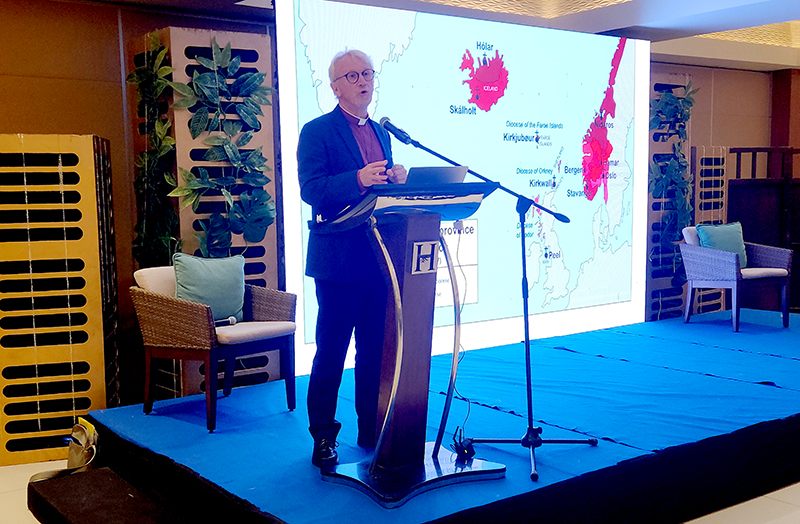
Bishop Masvie spoke about the work of the LKNI in its West-Nordic context, highlighting the history of the church and its church planting efforts. Their church is small, he said, and “if you’re small, you’re forced to work smart.” For the LKNI, that has meant strategic outreach following this general pattern: A mature pastor identifies a city with a university and issues invitations there to attend worship services. Once a small group is identified–“We usually start with three, four, or five people,” Bishop Masvie noted, although they’ve sometimes started “even with just one”—they begin holding services, something possible thanks to the scalability of liturgical worship. As the congregation becomes settled, the mature pastor moves on to identify another mission site while care of the congregation is handed over to one of the church’s young pastors.
Bishop Masvie noted that what works in their context may not work for others, but that this strategy has had encouraging results for their own church. “We are small but we are growing,” he noted, “with a 20 percent growth in attendance every year.”
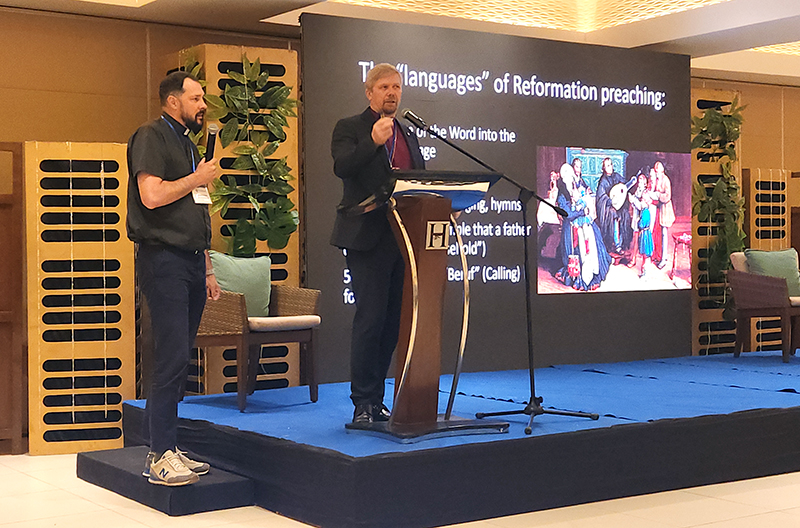
Next to speak was Bishop Laptev, who outlined the work pursued by the Ingrian church. He noted that the Reformation sought to bring Christ to people by preaching the Gospel in the language of the people. In the same way, he said, the church’s challenge is to ask today: “What is the language of preaching for our post-Christian society?”
He went on to highlight stories of outreach in the Ingrian church. In one example, he noted that the church had been given the opportunity to use a historic church building no longer in use. In an attempt to speak through “the language of images” to unchurched people in the region, they used that space to set up elaborate biblical exhibits—on creation, on the Passion, and more—which drew great interest in the community, bringing people into the church. While an investment, these same exhibits have also been able to be used in other community with similar results. This has led naturally to offering introductory classes on the faith, with 80 percent of those participating between the ages of 18-35. “The language of images has been very helpful to us in preaching the Gospel,” Bishop Laptev concluded.
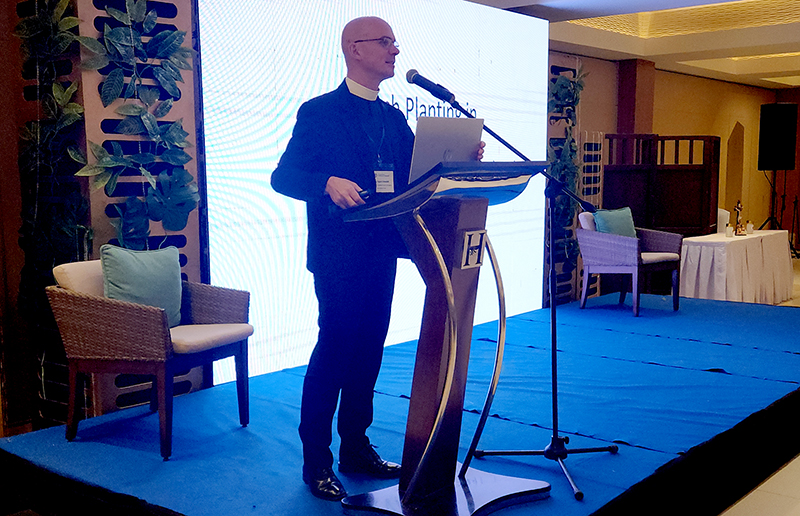
Chairman Elect Simojoki then discussed challenges related to their missions in the United Kingdom and in Ireland. “Our experience of church planting in recent years is this: essentially, we’ve had this ‘Man of Macedonia’ approach,” he explained. “We go when we are called, either when members move or when outsiders contact us.”
Not that this is easy. He noted that Lutheran outreach in the region faces many challenges: the church is quite small, and its congregations are separated by large geographic spaces. “We have fewer pastors than congregations,” he noted, “and so our personnel resources are thinly spread.” He also noted the challenge of limited funds, and the cost to rent premises for mission sites—as well as the challenges of member commitment. And sometimes they make mistakes. But “one of the most important assets that a church worker, a missionary, a church planter can have is to recognize when we mistakes,” Chairman Elect Simojoki said, “and learn from them.”
———————
For more news from the ILC’s 2025 World Conference, click here.

